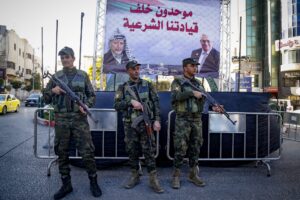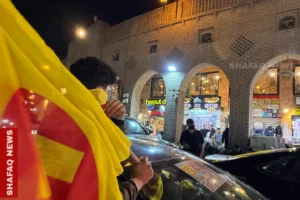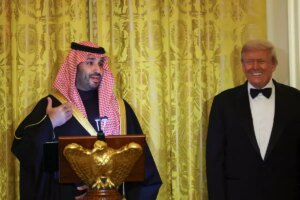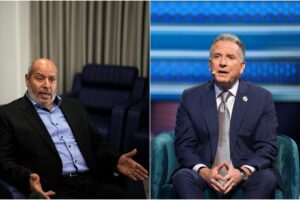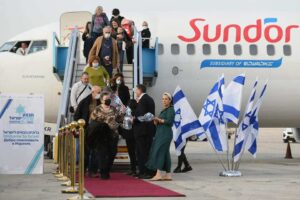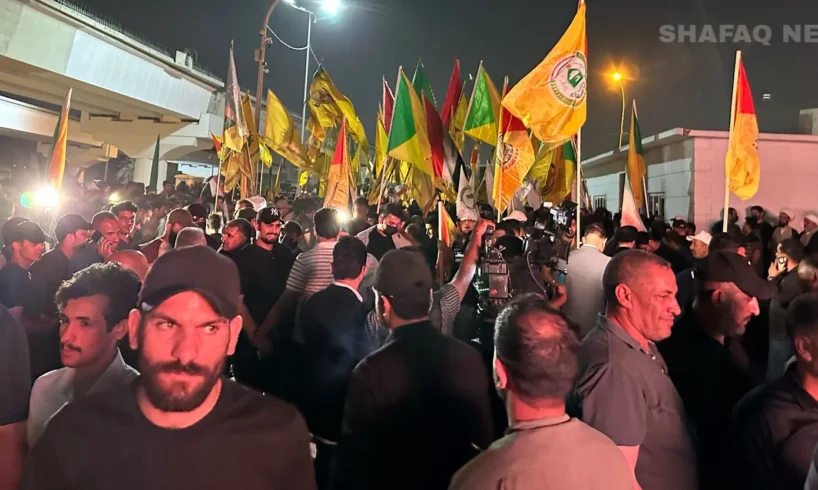
Shafaq News
On the morning after
Iraq announced the results of its 2025 parliamentary elections, the political
landscape felt familiar yet fundamentally transformed. The Patriotic Shiite
Movement (PSM), led by Muqtada Al-Sadr, once dominant in the Shiite street, was
notably absent. Its boycott left a void in a constituency long considered its
stronghold.
Civil groups emerging
from the 2019 Tishreen protests struggled to reclaim that ground — weakened by
internal divisions, repression, and widespread disillusionment. In their
absence, momentum shifted decisively toward armed factions, which appear to be
riding their most significant wave of parliamentary influence since 2003.
The Independent High
Electoral Commission (IHEC) final tally showed that these factions captured
between 60 and 70 seats in the new 329-member legislature — a surge that will
test Iraq’s political system: can it fully integrate actors who are both
weaponized and deeply embedded in political life?
Read more: 20 Years of voting patterns: Why Iraqis continue to elevate the sitting Prime Minister’s list
From Arms to Power
To gauge the scale
and significance of this shift, one must trace the origins of these armed
factions. In 2014, the Popular Mobilization Forces (PMF) emerged following a
religious edict from Grand Ayatollah Ali al-Sistani after Mosul’s fall to ISIS.
Thousands of volunteers joined the ranks under a government-sanctioned
structure. Over time, this umbrella evolved into a powerful political network,
not just a military force.
Today, many of the
most influential MPs in the parliament represent political wings of these
Iran-backed, PMF-linked groups. Key among them are Sadiqoon Movement, led by
Qais al-Khazali; Hadi al-Amiri’s Badr Organization; the Ataa Movement, led by
Falih al-Fayyadh; the National State Forces Alliance (Quwa al-Dawla
al-Wataniyah) of Ammar al-Hakim; and Huqooq (Rights), led by Hossein Moanes.
These parties blend social, religious, and territorial influence with
organizational coherence often tracing back to the PMF’s command structure.
This recent electoral
success is not unprecedented. In 2018, the pro-PMF electoral vehicle known as
the Fatah Alliance won 48 seats, according to Iraqi officials. Within that
bloc, the Badr Organization maintained a strong presence, while Asaib Ahl
al-Haq, the armed wing of al-Khazali’s Sadiqoon, increased its parliamentary
footprint. Ammar al-Hakim’s Wisdom Movement (Tayyar al-Hikma) held roughly 19
seats at the time.
By the 2021 election,
however, the landscape had shifted. The Fatah Alliance collapsed to around 17
seats, losing more than 30 from 2018. According to the US Office of Inspector
General for Operation Inherent Resolve, the Badr Organization suffered steep
losses, shrinking to just four seats. These declines were linked to voter
backlash, shifting electoral moods, and the rise of nationalist,
anti-establishment forces.
Yet, the 2025 elections
reversed that decline, and the PMF-aligned parties rebounded strongly. Sadiqoon
captured 27 seats, the Badr Organization 21, and smaller lists affiliated with
the so-called “resistance factions,” including Huqooq (Rights), gained six
seats.
Political analyst
Issam Hussein highlighted to Shafaq News that the outcome reflects a long-term
trend rather than a passing shock. He emphasized the media’s role in
“amplifying the symbolic presence” of the factions through narratives of
resistance and steadfastness, while the volatile regional environment
surrounding Iraq made these results “remarkable.”
Hussein pointed to
psychological and political shocks affecting the Shiite and Arab street,
including the Iran-Israel Twelve-Day War, the assassination of former Hezbollah
Secretary-General Hassan Nasrallah, the October 7 Israeli war in Gaza, and the
rise of Hayat Tahrir al-Sham (HTS) consolidating power in Syria.
According to Hussein,
Iraqi voters shifted from prioritizing “services” to seeking “protection.” Those
who once rallied behind calls for a civil state and anti-corruption measures
now favored candidates with arms, combat experience, and organizational
capacity to address perceived existential threats.
“Voting for the
factions reflected a reaction to regional instability rather than an open
endorsement of the groups themselves,” he observed.
Hussein also
highlighted a paradox: prior US opposition to the factions had not previously
boosted their electoral support, though it appears to have influenced voters
this year. He recalled the 2020 assassinations of Abu Mahdi al-Muhandis, then
deputy head of the PMF, and Qassem Soleimani, commander of Iran’s Quds Force,
as events that might have generated sympathy for the factions, but public
attention then focused on Tishreen demands and political reform.
Today, the US’s
hard-line rhetoric seems to have reinforced the factions’ legitimacy among
parts of the electorate as actors confronting external influence.
Read more: Iraq’s 2025 Elections: Old lines, new margins
Power Tested
Political analyst
Majash Mohammed identified the election’s broader implications. Highlighting
the results to Shafaq News, he described the outcome as a “notable political
shift” in Iraq’s post-2003 trajectory.
He further noted that
armed actors once considered fringe have become entrenched, with social reach,
“translating military capacity into real leverage over democratic
institutions.’’
At the center of
these changes, he added, is Prime Minister Mohammed Shia Al-Sudani. Appointed
in 2022 with tacit approval from both Iran and the United States and in
coordination with the armed factions, he now faces a parliament “shaped by both
opportunities and risks.’’
Those who previously
supported him are stronger yet increasingly wary of his intentions. During his
tenure, Al-Sudani distanced himself from the factions, aligning closer to
regional positions connected to Turkiye, Qatar, and networks linked to the
Muslim Brotherhood.
He also signaled
openness to Washington for potential disarmament talks, while further
surrounding himself with advisors skeptical of the factions’ influence.
This skepticism is
pronounced. Several parties within the Coordination Framework (CF), the
predominantly Shiite alliance steering Baghdad’s government, oppose Al-Sudani’s
continuation, favoring an alternative candidate.
Alaa al-Hadadi of the
State of Law Coalition (E’tilaf Dawlat al-Qanoun) indicated to Shafaq News that
Asaib Ahl al-Haq, Huqooq, Khadamat, and Sadiqoon reject renewing Al-Sudani’s
mandate. He added that the Coalition, the second-largest CF bloc with 29 seats,
maintains “only one nominee for prime minister: [its leader,] Nouri al-Maliki.”
Washington has
closely monitored these developments. Ahead of the elections, US officials
warned that any significant expansion of “militia influence’’ in government
would constitute a serious source of concern. The message was clear: the United
States supports centralizing weapons under state control, not allowing
autonomous armed groups to dominate.
Following the
elections, US Presidential Envoy to Iraq Mark Savaya reaffirmed a familiar
stance: political participation by these groups is permitted, but red lines
exist regarding sovereign decisions on security, energy, and foreign affairs.
“Trump’s
administration will not accept armed factions taking a leading role in the next
government,” he emphasized.
Former US State
Department adviser David Phillips suggested to Shafaq News that Washington
intends to allow the government-formation process to unfold, provided parties
negotiate in good faith. However, he warns that the Trump-era playbook —
sanctions — remains very much on the table if red lines are crossed.
Meanwhile, Safwan
Al-Amin, senior fellow at the Atlantic Council, noted that upcoming
negotiations are likely to be “difficult, prolonged,” pitting parliamentary
leverage against economic and diplomatic pressure.
Thus, the 2025
election marks more than a numerical reshuffling. The rise of armed factions in
parliament is not merely a seat gain but a test of the political system’s
ability to accommodate armed groups at the heart of legislation and governance,
a test of Baghdad’s relations with both Washington and Tehran, and perhaps a
test of what remains of the civil state dream that Tishreen protesters once
raised.
In a country where
elections often mark the beginning of a new crisis rather than its conclusion,
the stakes have rarely been higher.
Read more: Unsettled victory: Al-Sudani between a second term and Shiite power balances
Read more: Failure or feat? A bold assessment of PM Al-Sudani’s tenure
Written and edited by
Shafaq News staff.
